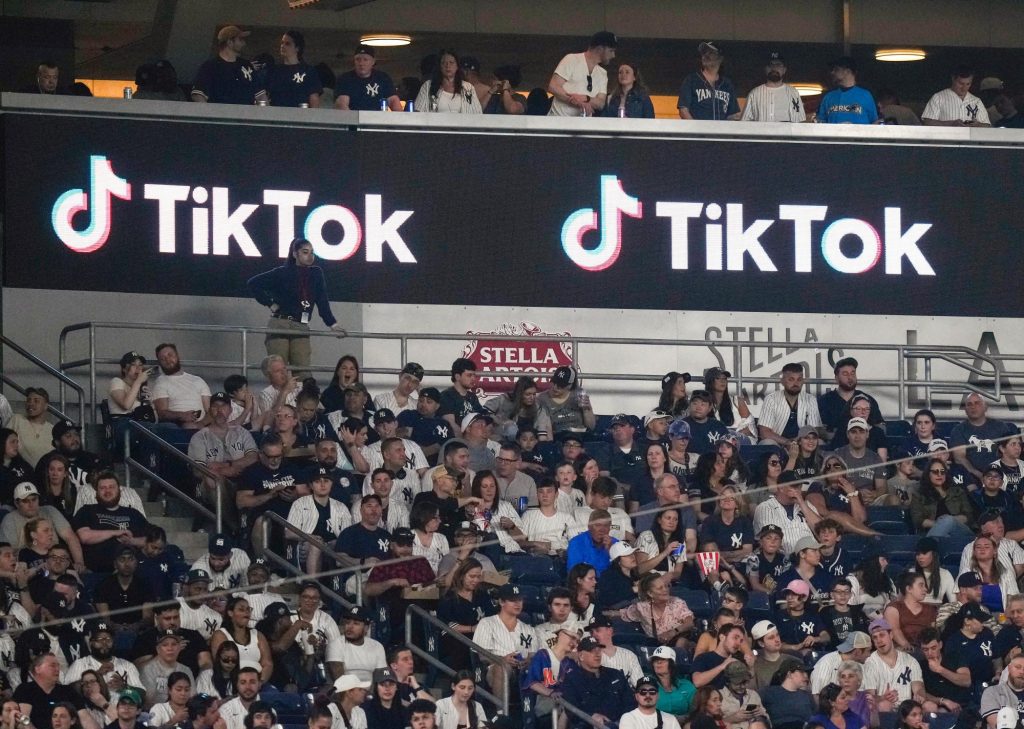By AAMER MADHANI (Associated Press)
WASHINGTON (AP) — President Joe Biden on Friday supported a law that could result in the well-liked video-sharing app TikTok being banned in the United States, a move that comes as there's increasing worry in Washington about preventing Americans’ data from ending up in China’s hands.
The law, which was unanimously passed by the U.S. House Energy and Commerce Committee on Thursday, calls on China’s ByteDance to sell its ownership of TikTok or face a U.S. ban. Republican House Speaker Mike Johnson also backs the bill and has signaled that it will soon be voted on in the House.
“If they pass it, I’ll sign it,” Biden said in response to reporters asking about the law.
The White House assisted in creating the bill, but White House press secretary Karine Jean-Pierre stated earlier this week that the TikTok law “still needs some work” to reach a point where Biden would support it.
Former President Donald Trump, the likely Republican nominee, expressed his opposition to the ban in a post on Truth Social on Thursday, stating that it would benefit rival social media platform Facebook. Trump’s objection to the law comes after he issued — and later revoked — an executive action toward the end of his presidency aimed at banning TikTok and another popular app, WeChat.
Trump’s resistance puts him on the opposing side of the argument from influential Republicans, including Johnson and Republican House Majority Leader Steve Scalise, who has referred to the law as a “crucial national security bill.”
Both the FBI and the Federal Communications Commission have cautioned that TikTok owner ByteDance could share user data — such as browsing history, location, and biometric identifiers — with China’s authoritarian government. TikTok has denied doing so and pledged not to if requested. The U.S. government also hasn't presented evidence of this occurring.
In a separate action, Biden recently issued an executive order authorizing the Department of Justice and other federal agencies to take measures to prevent the large-scale transfer of Americans’ personal data to what the White House refers to as “countries of concern,” including China, Russia, North Korea, Iran, Cuba, and Venezuela.
In 2022, Biden prohibited the use of TikTok by the federal government’s nearly 4 million employees on devices owned by its agencies, with limited exceptions for law enforcement, national security, and security research purposes.
While his administration has raised national security concerns about TikTok, Biden’s reelection campaign joined the platform last month.
If the bill is put into effect, it would essentially forbid TikTok and other ByteDance apps from being accessible in Apple or Google app stores or on web hosting services in the U.S.
The bill takes a two-fold approach. First, it requires ByteDance Ltd., which is based in Beijing, to divest TikTok and other applications it controls within 180 days of the bill's enactment, or those applications will be prohibited in the United States. Second, it establishes a limited process to allow the executive branch to block access to an app owned by a foreign adversary if it poses a national security threat.
The company has also pledged to separate U.S. user data from its parent company using a different organization that is operated independently from ByteDance and overseen by external observers.
A survey released recently by The Associated Press and NORC Center for Public Affairs Research discovered that Americans are deeply split on the issue of prohibiting the app. Thirty-one percent of U.S. adults stated they would support a nationwide ban on TikTok use, while 35% said they would oppose that kind of action. An additional 31% of adults said they neither support nor oppose a ban on the social media platform.
The AP-NORC survey demonstrates that TikTok users — around 170 million in the U.S., mostly young people — are less likely to be concerned about the app sharing American users’ data, showing a generational divide that was previously observed. Around a quarter of daily users claim they are “extremely or very concerned” about the concept of the Chinese government accessing users’ personal information, compared to about half of U.S. adults overall.
—
AP writers Josh Boak, Kevin Freking and Haleluya Hadero contributed reporting.









